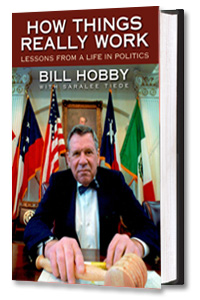Because to many people politics has come to be irrelevant. Politics has come to be seen as more about ideological issues than about making our lives better.
Occasionally a writer comes along who expresses our frustrations so well that a single book can change the tone of political discussion.
“Why Americans Hate Politics”, by E. J. Dionne, is such a book. Dionne, a Rhodes Scholar, now covers politics for The Washington Post and previously did so for The New York Times.
He expresses brilliantly public outrage about the “moralism” of the Left and Right. “Moralism” is another word for self-righteousness and certainly has nothing to do with morality.
As Dionne puts it, “America’s restive middle class is weary of a politics of confrontation that seems to have so little to do with the challenges the nation faces… Paradoxically, by expecting politics to settle too many issues, we have diminished the possibilities of politics.”
The politics of moralism and confrontation are not harmless quirks of a few ideologues. They seriously damage the American political center and the ability of our democracy to make a better life for citizens of this country.
The moralizers now play a big role in picking Presidential candidates in both parties. The moralizers are more interested in “outlawing” something or other they find offensive (abortion on the one hand, capital punishment on the other) than in helping people.
That is why we have not had, since Lyndon Johnson, an effective President who wanted more than anything else to make a better life for Americans. (President Carter, bless his soul, wanted to do that too, but he never found out how.)
The moralizers of the Left, observes Dionne, don’t understand that the taxpayer revolt is not selfishness but a worry about maintaining a middle-class standard of living. Anger at rising crime rates is not racism but a fear that crime is out of control. Very few of us do not know somebody who has been murdered, raped, or robbed in the last five years.
Anger about welfare programs, sometimes racist, is just as often a demand that basic rules about work apply to everybody.
The moralizers of the right, on the other hand, don’t understand that feminists are not selfish souls, but rational people who want to play their part in a changing world.
Believe it or not, Dionne points out, there is common ground here. Feminists and traditionalists agree that the work that mothers and other family care-givers do in our society is undervalued. Both say that tax laws ought to be changed to encourage the traditional family structure by giving a better break to parents. Requiring businesses to give parents leave to care for newborn children would strengthen the family.
Candidate Bush, speaking to women’s groups during his campaign, said he would make child care facilities a major emphasis of his administration. But when the campaign was over, President Bush opposed parental leave and supported lowering taxes–on capital gains, not for poor and middle class parents.
The family values that had seemed so good for the country in 1989 had somehow become bad for the country by 1991.
Actually, support for caring facilities for the children of working mothers was opposed by the Religious Right faction of the Republican Party. Apparently this group longs for the return of a day that never existed: the day when there were two parents in every family and all the fathers worked and all the mothers stayed home.
Fortunately for the country and for the moralizers, their fantasy did not come to pass. Were it not for wages earned by women, says Dionne, half the families in the country would be in poverty. Just think what that would do to welfare costs!
Isn’t it time for the people who want to “get government off our backs” to stop trying to use government to impose THEIR values? After all, consistency and logical thought ought to have SOME place in public policy.
Politics and government are really about education, health, public safety, and transportation. When ideological gridlock starts to interfere with those basic services, many Americans start hating politics.
President Johnson asked one simple question about any new policy proposed to him: “How does it affect the family living on $18,000 a year?”
That’s a pretty good test.

